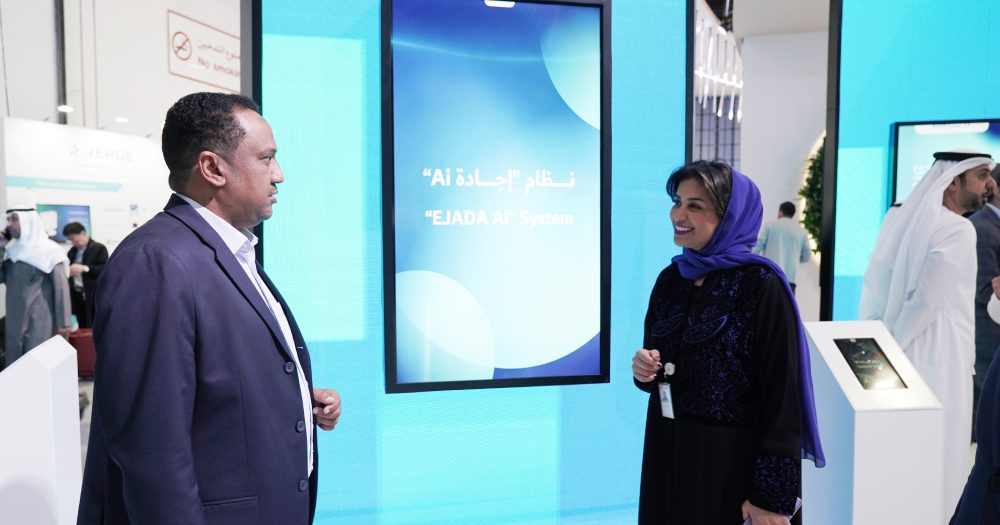DHA: EJADA AI system is “achieving remarkable results”

The Dubai Health Authority (DHA) has announced that the EJADA Ai system, launched a year ago, is achieving remarkable results. The system monitors, analyzes, and evaluates the quality of healthcare services and implements a preemptive prevention system for diseases and their complications.
EJADA AI identifies individuals most susceptible to diabetes risks and reduces the financial burden of the disease by 30%.
According to Saleh Al Hashimi — CEO of the Dubai Health Insurance Corporation at the Authority — EJADA is fully based on AI and has succeeded in identifying diabetes patients most prone to disease complications and risks, as well as individuals closest to developing diabetes.
He emphasized EJADA's ability to elevate the quality of life and improve healthcare levels through proactive preventive measures. These measures aim to protect diabetes patients from potential health deterioration and prevent individuals at risk of developing diabetes.
How does it work?
Al Hashimi explained that the EJADA AI system integrates processes and procedures from monitoring to analysis of critical chronic disease data such as diabetes, chronic obstructive pulmonary disease, asthma, and others. This facilitates the identification of individuals at risk, diagnosis of potential complications, and proactive measures to avert complications and risks through advanced specialty medical programs implemented by the DHA's Public Health Protection Department.
"The measures taken by the Authority for preventive healthcare are implemented seamlessly and accurately among health insurance experts, the DHA's Public Health Protection Department and in close collaboration with insurance companies and healthcare facilities," he said.
In the same context, Al Hashimi explained that the concept of the EJADA system is based on a transition from a volume-based model to a value-based model. The system evaluates healthcare facilities, doctors, and insurance companies based on the data collected by the Dubai Health Authority, as well as patient feedback and the stakeholders (insurance companies) and service providers (medical facilities). The Authority then carries out the necessary improvement processes and clinical output performance indicators for healthcare services.
Al Hashimi pointed out that this system is designed to support four key objectives outlined in Dubai's 2026 healthcare sector strategy, which include: making Dubai a model for value-based healthcare services, providing patient-centered care, promoting a healthy lifestyle for Dubai's residents, and establishing Dubai as a digital health hub.
"The value and significance of the EJADA Ai system lies in the precise processing of electronic claims data, which provides a comprehensive view of the community's health. When analysed using artificial intelligence, this data allows for early detection of chronic diseases, paving the way for timely interventions, improving patient outcomes, and reducing the cost of disease management," he added.
Advantages of the EJADA AI system
According to Al Hashimi, the system's advantages revolve around seven main axes, namely:
- Rich data: EJADA Ai uses a vast dataset of electronic claims data in Dubai, including data from approximately 4 million insured individuals and over 360 million patient activities, diagnoses, and patient notes since the launch of the system in mid-2022.
- Comprehensive solution for chronic diseases: Unlike many artificial intelligence systems that focus on a single aspect of chronic diseases, EJADA Ai provides customized insights for chronic diseases at all stages, to meet the needs of diagnosed and undiagnosed patients.
- Early detection and intervention: EJADA Ai provides risk scores to identify undiagnosed individuals and those at high risk among the general population, enabling early intervention and prevention of chronic diseases.
- Management of disease complications: EJADA Ai offers insights, risk scores, and high-cost disease complications, aiding healthcare specialists in dealing with disease progression and improving patient outcomes.
- Disease prediction and resource optimization: EJADA Ai facilitates precise planning and budget allocation by predicting diseases, providing a comprehensive view of expected costs for each disease, and detailing categories such as medication expenses, inpatient care, and consultation fees.
- Advanced technology and real-time adaptability: EJADA Ai benefits from advanced learning models for accumulated data over time, providing dynamic predictions and risk scores updated with any changes in the patient's condition.
- Leading solution for global impact: As the first-of-its-kind in the region and a leading global model, EJADA Ai serves as a comprehensive solution for managing and preventing chronic diseases, enhancing Dubai's position as a distinguished global healthcare destination.
Future plans
Al Hashimi pointed out that the Dubai Health Authority aims — through the EJADA AI system — to provide patients with more personalized care, and to activate the role of stakeholders in shaping the future of healthcare in Dubai by using innovative ideas, constructive perspectives, and objective feedback.
He explained that the Authority has identified 30 major diseases as priorities within the system until 2025, based on Major Diagnostic Categories (MDC), considering several factors — including the increasing number of patients, rising claim numbers, and the significant cost burden.
"Achieving this relies on a set of key indicators, including those related to clinical measures, safety, and patient status, as well as those related to financial status and the value of medical services," Al Hashimi said. "Over 50% of the selected clinical recommendations and Key Performance Indicator (KPI) documents have been developed through collaborative efforts with expert committees to ensure consistent adherence to these essential clinical recommendations and KPI guidelines. The Authority has also provided advanced training programs for over 2000 healthcare providers and insurance companies, totaling 3750 training hours, covering more than half of the specified diseases in the program."
💡Did you know?
You can take your DHArab experience to the next level with our Premium Membership.👉 Click here to learn more
🛠️Featured tool
 Easy-Peasy
Easy-Peasy
An all-in-one AI tool offering the ability to build no-code AI Bots, create articles & social media posts, convert text into natural speech in 40+ languages, create and edit images, generate videos, and more.
👉 Click here to learn more


